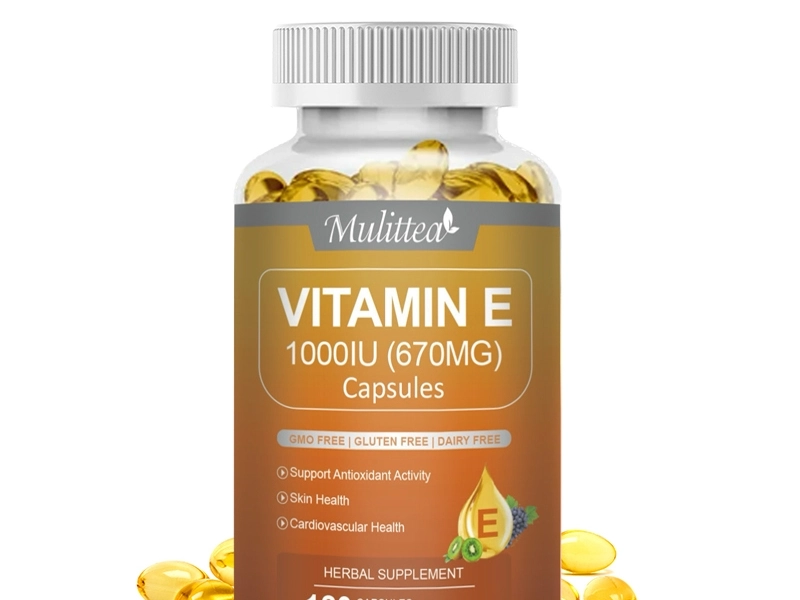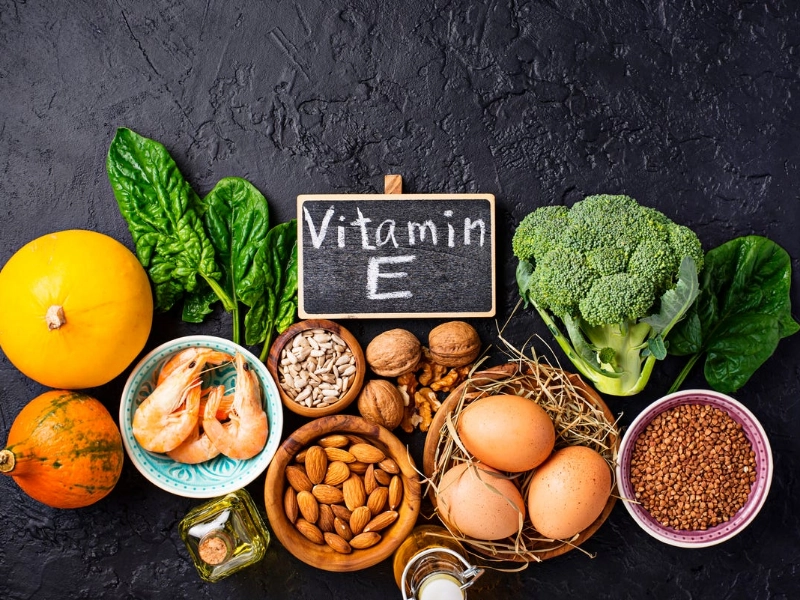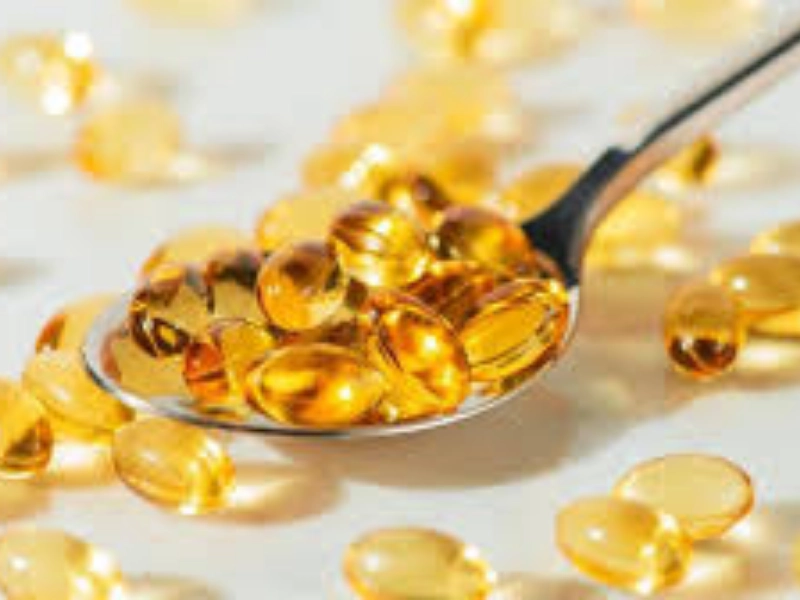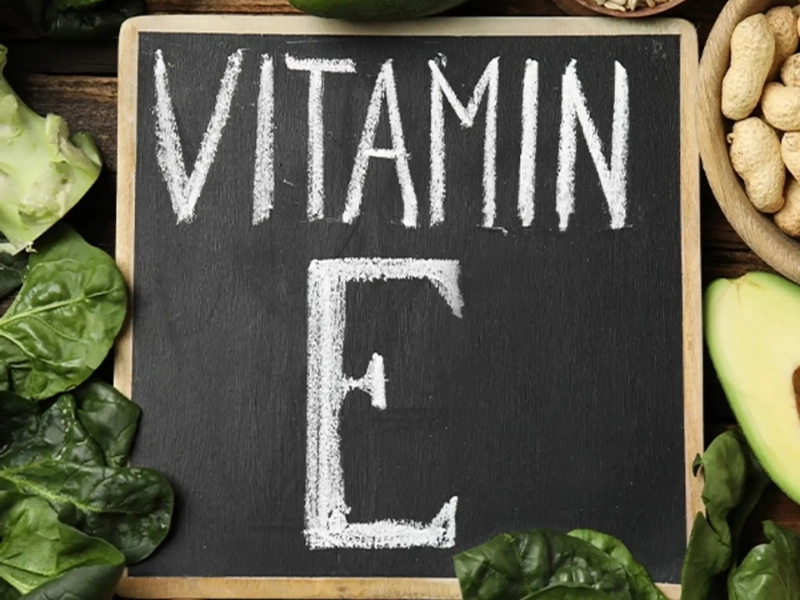Strong antioxidant vitamin E is essential for the body's inflammatory response support. This vital nutrient enhances general health and helps shield cells from oxidative damage. Although the body naturally fights against infections and injuries by means of inflammation, persistent inflammation can cause a variety of medical problems. Knowing how vitamin E helps a good inflammatory response will inspire you to include this nutrient into your diet for best health.

 When the body's free radical count is out-of-balance with antioxidants, oxidative stress results. Cellular damage brought on by free radicals might result in inflammation and other medical problems. Vitamin E neutralises free radicals, therefore lowering oxidative stress and the related inflammatory reactions.
Studies have indicated that enough vitamin E helps reduce indicators of inflammation in the body. Higher vitamin E levels, for instance, have been linked in studies to typically smaller quantities of C-reactive protein (CRP), a frequent sign of inflammation. Vitamin E assists the body to sustain a healthy inflammatory response by lowering oxidative stress, therefore facilitating more efficient healing from infections and injuries.
When the body's free radical count is out-of-balance with antioxidants, oxidative stress results. Cellular damage brought on by free radicals might result in inflammation and other medical problems. Vitamin E neutralises free radicals, therefore lowering oxidative stress and the related inflammatory reactions.
Studies have indicated that enough vitamin E helps reduce indicators of inflammation in the body. Higher vitamin E levels, for instance, have been linked in studies to typically smaller quantities of C-reactive protein (CRP), a frequent sign of inflammation. Vitamin E assists the body to sustain a healthy inflammatory response by lowering oxidative stress, therefore facilitating more efficient healing from infections and injuries.
 Reaping the anti-inflammatory results from vitamin E requires including it into your diet. Many foods high in this essential vitamin are simple to incorporate into your everyday meals. Among the great sources of vitamin E include nuts, seeds, spinach, broccoli, and vegetable oils including olive and sunflower oils.
Particularly abundant in vitamin E, almonds and hazelnuts make excellent snacks or additions to baked products and salads. Furthermore great fruits with much of this vital vitamin are avocados and kiwi. Eating a variety of foods high in vitamin E can help you make sure your body gets the required elements to enable a good inflammatory response.
Reaping the anti-inflammatory results from vitamin E requires including it into your diet. Many foods high in this essential vitamin are simple to incorporate into your everyday meals. Among the great sources of vitamin E include nuts, seeds, spinach, broccoli, and vegetable oils including olive and sunflower oils.
Particularly abundant in vitamin E, almonds and hazelnuts make excellent snacks or additions to baked products and salads. Furthermore great fruits with much of this vital vitamin are avocados and kiwi. Eating a variety of foods high in vitamin E can help you make sure your body gets the required elements to enable a good inflammatory response.
 Although inflammation is a normal and essential part of healing, one must keep a balance. Among the several health issues caused by chronic inflammation are metabolic illnesses and autoimmune conditions. Through its ability to control the inflammatory response, vitamin E is essential in this equilibrium.
Vitamin E lessens the detrimental consequences of chronic inflammation by helping the body control inflammation. Overall health depends on this control since it lets the body react suitably to challenges without overreaction. One easy yet powerful approach to support this balance and advance long-term health is making sure one gets enough vitamin E.
Although inflammation is a normal and essential part of healing, one must keep a balance. Among the several health issues caused by chronic inflammation are metabolic illnesses and autoimmune conditions. Through its ability to control the inflammatory response, vitamin E is essential in this equilibrium.
Vitamin E lessens the detrimental consequences of chronic inflammation by helping the body control inflammation. Overall health depends on this control since it lets the body react suitably to challenges without overreaction. One easy yet powerful approach to support this balance and advance long-term health is making sure one gets enough vitamin E.
Studies have indicated that vitamin E could help to avoid inflammatory-related chronic illnesses. Chronic inflammation has been connected to conditions like diabetes, heart disease, and several malignancies. Vitamin E can help lower the risk of some diseases by promoting a normal inflammatory response. Studies have found, for example, that by enhancing endothelial function and lowering inflammation in blood vessels, vitamin E supplements may cut the risk of heart disease. In the same vein, its antioxidant qualities might guard against cancer by stopping oxidative damage to DNA. Including foods high in vitamin E into your diet will help you be proactive in lowering the inflammation-related chronic disease risk.
Considering other lifestyle choices that support a healthy inflammatory response can help one to maximise the advantages of vitamin E. For instance, consistent exercise has been demonstrated to lower inflammation and strengthen the body's antioxidant defences. Combining exercise with a diet high in vitamin E will have a synergistic impact, therefore enhancing general health. Further supporting a balanced inflammatory response include mindfulness techniques, enough sleep, and weight management through which one manages stress. You may maximise your body's capacity to control inflammation by using a whole strategy including foods high in vitamin E and good lifestyle choices. All things considered, vitamin E is a vital vitamin whose antioxidant qualities, immunological support, and function in the prevention of chronic diseases help to support a normal inflammatory response. Understanding its value and including foods high in vitamin E into your diet will help you to support general health and well-being.